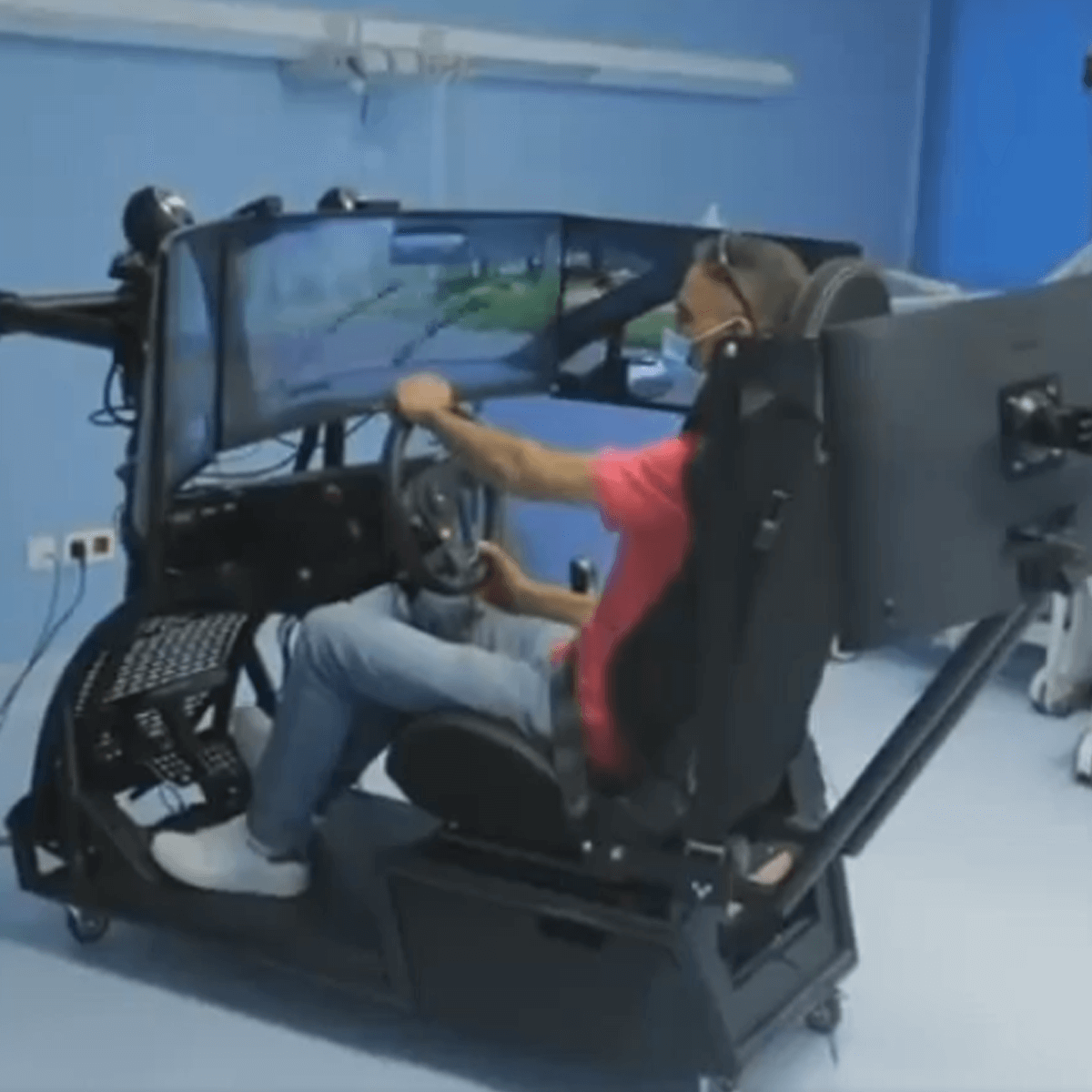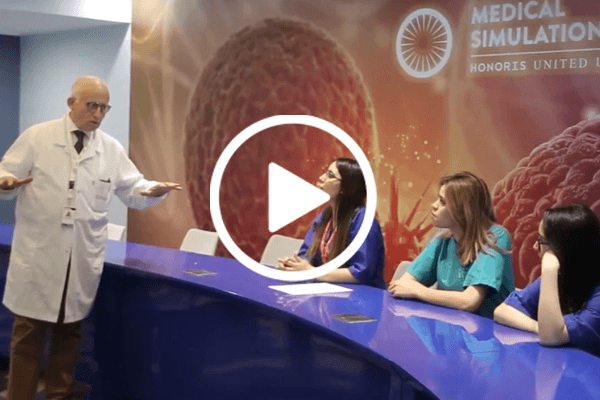
To date, more than 4000 students and 250 external healthcare professionals from across Africa have benefited from the services of the MSC.
Founded on November 10, 2018, The Honoris’ cutting edge purpose-built Medical Simulation Center (MSC) is located in the heart of Tunis, and was developed in coordination with international experts, and using advanced technologies.
In a world of constant disruption, the MSC trains students for the modern workplace by exposing them to tech-enabled healthcare early in their learning process. MSC learners interact with state-of-the-art technology, allowing them to understand the role of technology in the healthcare sector and its impact in improving patient care. The goal for Honoris for their students is that they will be at ease with the introduction and use of new technology upon entering the workplace.
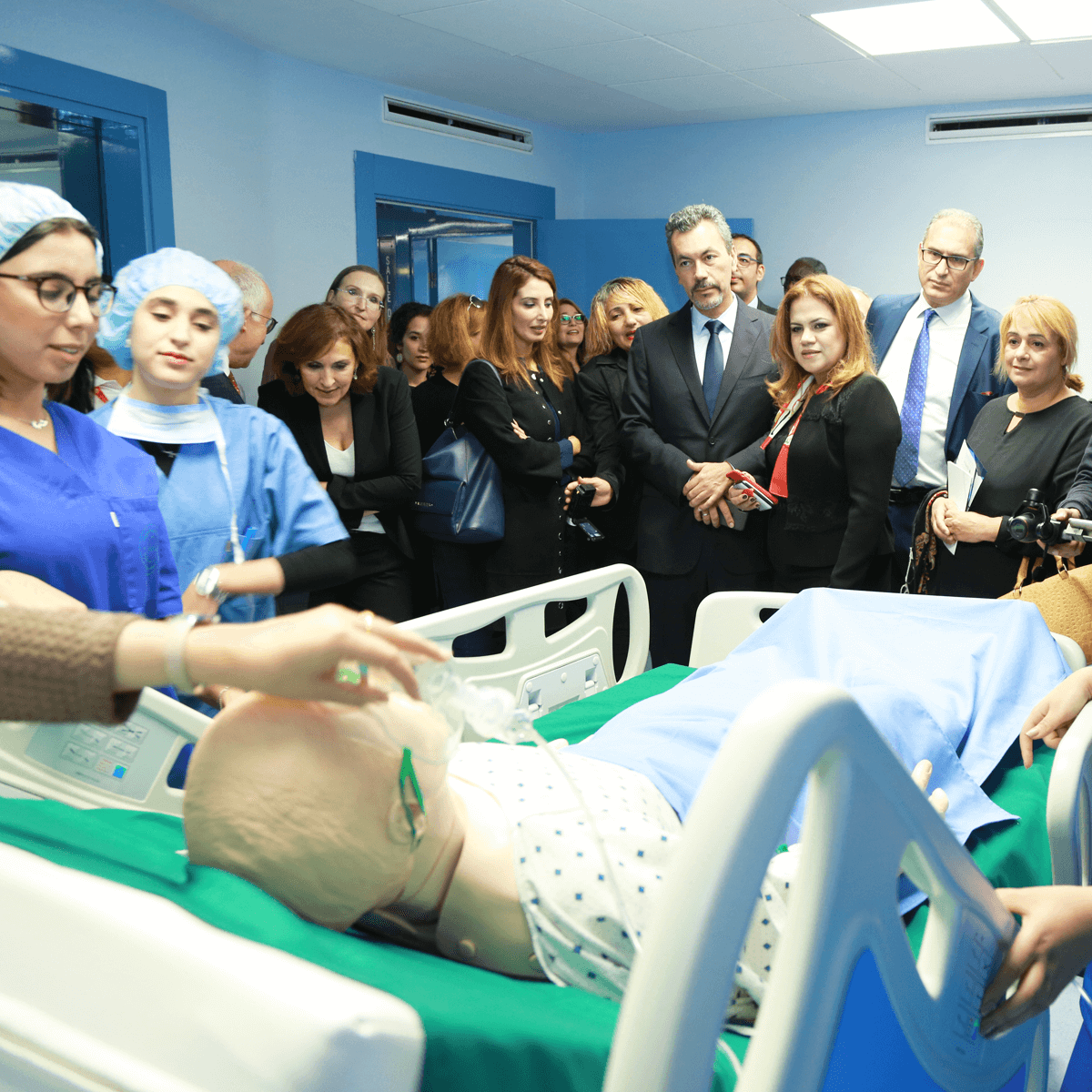
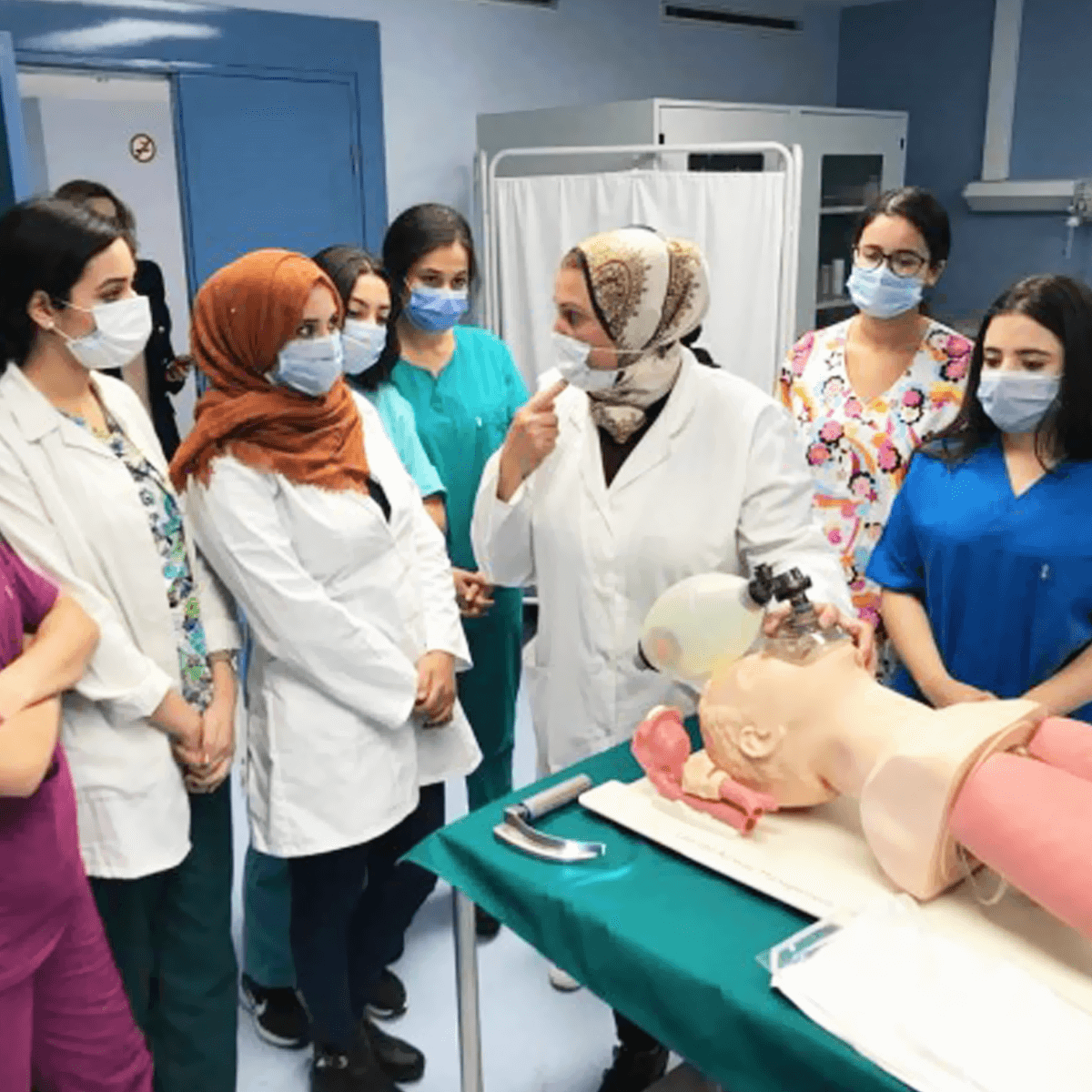
The MSC creates life-like scenarios and emergencies for students to practise their skills, and forms part of continuous education for health professionals, which leads to more efficient care procedures for patients and, in turn, improved healthcare outcomes.
The Honoris Medical Simulation Center (MSC) offers excellence in multidisciplinary clinical training and education through simulators for all levels of care. The center is equipped with four Simulation Units and in accordance with international standards. These include advanced mannequin technologies in a hospital setting, scenario-based simulations, actor-based simulations and cutting-edge virtual reality technologies, making it the most advanced simulation center on the African continent.
COMPLEX PROCEDURES, LIKE CHILDBIRTH, ARE SIMULATED TO PREPARE STUDENTS FOR CHALLENGING SITUATIONS
In partnership with Tunisian start-up, Alien’s Dimension, MSC created a VR app that uses the camera of a mobile device (phone or tablet) to create virtual reality experiences.
The combined healthcare simulation experience of the MSC team is unsurpassed, allowing MSC to deliver competent, comprehensive healthcare simulations with techniques drawn from multiple disciplines and customized to the level and background of each group. MSC prepares learners to handle real medical situations and crises, as well as to develop their teamwork skills and behaviors.
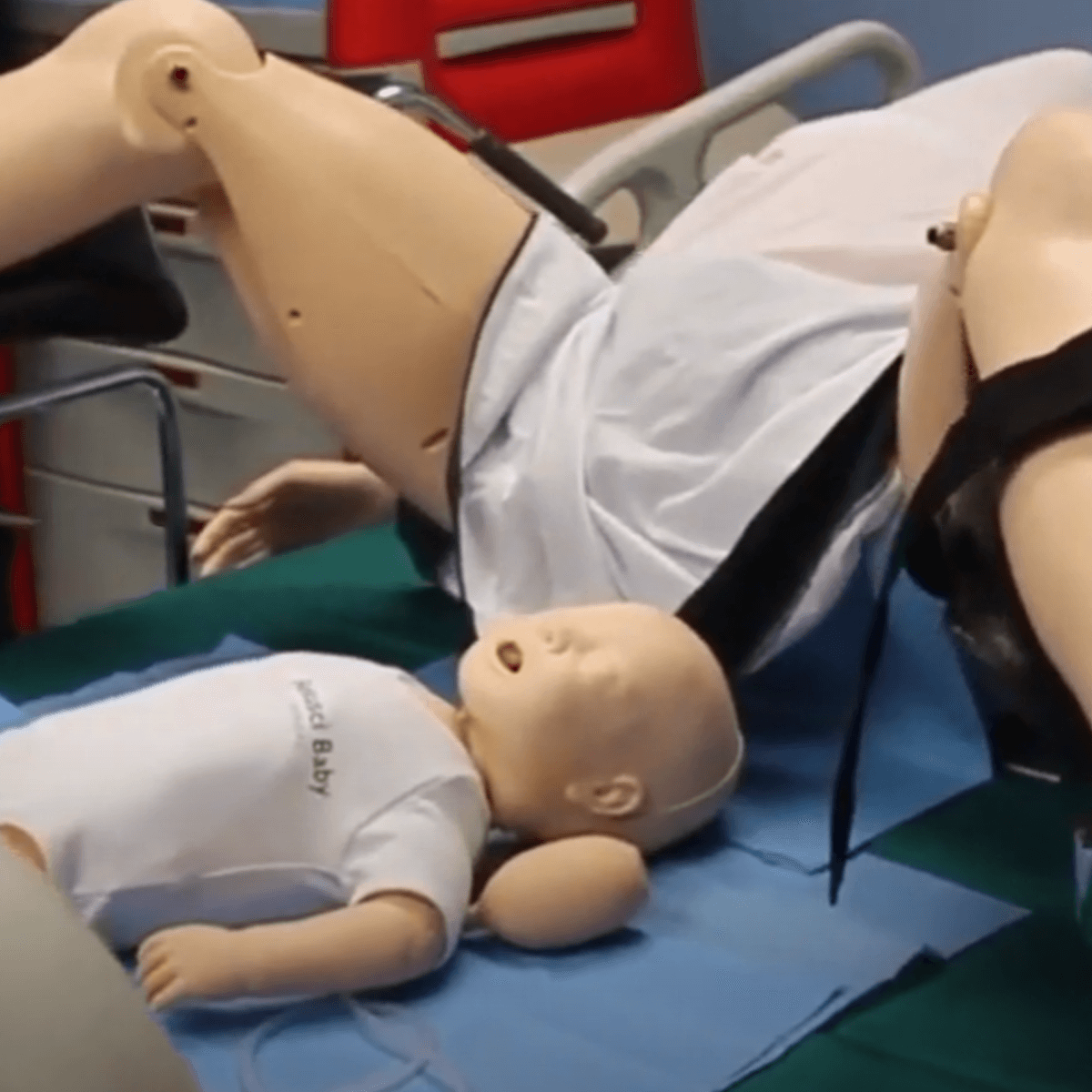
Student satisfaction
”Thanks to this program, which was practical and very comprehensive, I was able to quickly put my knowledge into practice – with the technical gestures to deal with all the problems that we may encounter, be it puncture, in-vitro manipulations and implantation of embryos in almost real conditions. I found the training very useful as infertility is a real public health issue in Senegal.”
– SénéBineta, a Senegalese obstetrician who participated in a training program
94% found the quality of the workshops superior (half found it highly superior) to theoretical sessions.
86% found the simulation workshops superior to in-department training.
All students also provide feedback regarding the facilitator through DASH (Debriefing Assessment for Simulation in Healthcare), assessing 6 elements on a grade from 1 (ineffective) to 7 (outstanding): 95% of all learners (across all categories) gave a grade between 6 and 7.
SSH Accreditation Decision reported by Director of accreditation
The Society for Simulation in Healthcare (SSH) and the Council for Accreditation of Healthcare Simulation Programs granted Provisional Accreditation for the simulation program in September 2020, the first of its kind to be accredited in North Africa; the third in all of Africa.
This accreditation is recognition of the quality and rigorous training provided by the MSC in its fully immersive 21st century tech-enabled environment. This places the Center on par with leading global health institutions and broadens immediate opportunities for the next generation of African talent to contribute to the health and well-being of the continent.
SSH Accreditation Decision reported by Director of accreditation
- The medically assisted procreation training which allows African obstetricians to master the technique and consequently they will be able to give hope to couples who are deprived of having children.
- The free training offered to the healthcare givers of the public hospital.
- The SIM-Co (Driving Simulator) which will ultimately help to save lives.
Creating innovative solutions to positively impact the future of healthcare
The POLYTECH School and the Medical Simulation Center of Honoris in Tunisia, in collaboration with students from the communication school of the UNIVERSITÉ CENTRALE, have developed an intelligent decision-support system: SimCo (Artificial Intelligence / Machine Learning). Its function is to allow neurologists to confirm diagnoses for subjects suffering from neurological disorders (Alzheimer’s, stroke, etc.) which have a direct impact on driving.
- SimCo is a 3D driving simulator that assesses and analyzes the driving behavior of the patient, and is used to assist with the patient rehabilitation process.
- SimCo is also used to help doctors evaluate the competency of individuals over the age of 65 who require assessment for driver’s license renewal as required by Tunisian law.
- In this context, the UNIVERSITÉ CENTRALE of the Honoris United Universities group has utilized innovative engineering training courses where Artificial Intelligence assists in providing solutions.
- The AI strategy of the UNIVERSITÉ CENTRALE Group and the Medical Simulation Center strives to create innovation and employment opportunities through the development of new products requested by neurological physicians in Tunisia and beyond.
- The approach on applied research is a policy adopted by Honoris and its institutions in Tunisia to train future entrepreneurial and innovation executives to create value and wealth in the country.
